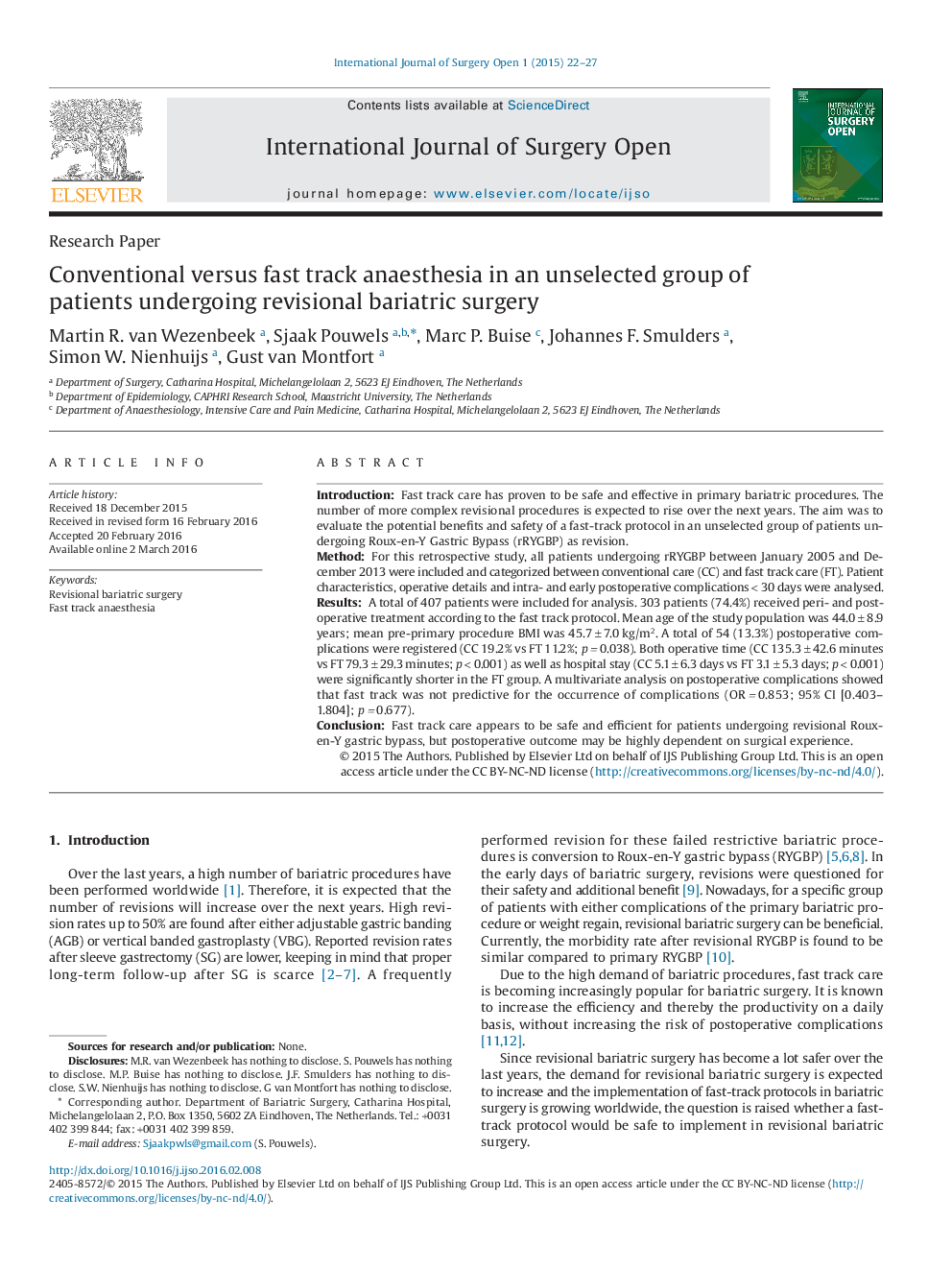| Article ID | Journal | Published Year | Pages | File Type |
|---|---|---|---|---|
| 2728413 | International Journal of Surgery Open | 2015 | 6 Pages |
•Fast track anaesthesia reduces length of hospital stay.•Fast track anaesthesia reduces postoperative complications.•Fast track anaesthesia is safe in patients scheduled for revisional bariatric surgery.
IntroductionFast track care has proven to be safe and effective in primary bariatric procedures. The number of more complex revisional procedures is expected to rise over the next years. The aim was to evaluate the potential benefits and safety of a fast-track protocol in an unselected group of patients undergoing Roux-en-Y Gastric Bypass (rRYGBP) as revision.MethodFor this retrospective study, all patients undergoing rRYGBP between January 2005 and December 2013 were included and categorized between conventional care (CC) and fast track care (FT). Patient characteristics, operative details and intra- and early postoperative complications < 30 days were analysed.ResultsA total of 407 patients were included for analysis. 303 patients (74.4%) received peri- and postoperative treatment according to the fast track protocol. Mean age of the study population was 44.0 ± 8.9 years; mean pre-primary procedure BMI was 45.7 ± 7.0 kg/m2. A total of 54 (13.3%) postoperative complications were registered (CC 19.2% vs FT 11.2%; p = 0.038). Both operative time (CC 135.3 ± 42.6 minutes vs FT 79.3 ± 29.3 minutes; p < 0.001) as well as hospital stay (CC 5.1 ± 6.3 days vs FT 3.1 ± 5.3 days; p < 0.001) were significantly shorter in the FT group. A multivariate analysis on postoperative complications showed that fast track was not predictive for the occurrence of complications (OR = 0.853; 95% CI [0.403–1.804]; p = 0.677).ConclusionFast track care appears to be safe and efficient for patients undergoing revisional Roux-en-Y gastric bypass, but postoperative outcome may be highly dependent on surgical experience.
